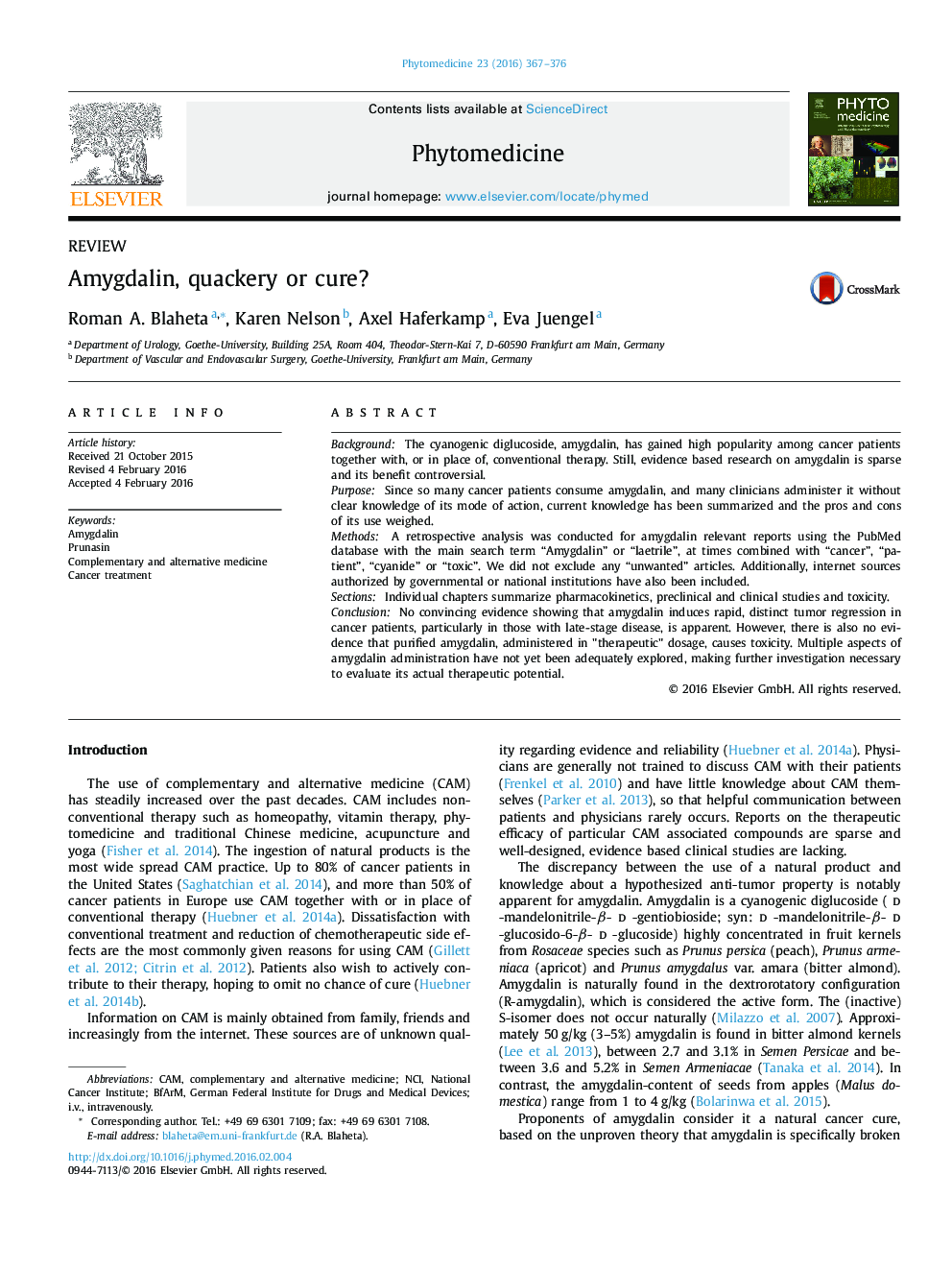| Article ID | Journal | Published Year | Pages | File Type |
|---|---|---|---|---|
| 2496324 | Phytomedicine | 2016 | 10 Pages |
BackgroundThe cyanogenic diglucoside, amygdalin, has gained high popularity among cancer patients together with, or in place of, conventional therapy. Still, evidence based research on amygdalin is sparse and its benefit controversial.PurposeSince so many cancer patients consume amygdalin, and many clinicians administer it without clear knowledge of its mode of action, current knowledge has been summarized and the pros and cons of its use weighed.MethodsA retrospective analysis was conducted for amygdalin relevant reports using the PubMed database with the main search term “Amygdalin” or “laetrile”, at times combined with “cancer”, “patient”, “cyanide” or “toxic”. We did not exclude any “unwanted” articles. Additionally, internet sources authorized by governmental or national institutions have also been included.SectionsIndividual chapters summarize pharmacokinetics, preclinical and clinical studies and toxicity.ConclusionNo convincing evidence showing that amygdalin induces rapid, distinct tumor regression in cancer patients, particularly in those with late-stage disease, is apparent. However, there is also no evidence that purified amygdalin, administered in "therapeutic" dosage, causes toxicity. Multiple aspects of amygdalin administration have not yet been adequately explored, making further investigation necessary to evaluate its actual therapeutic potential.
